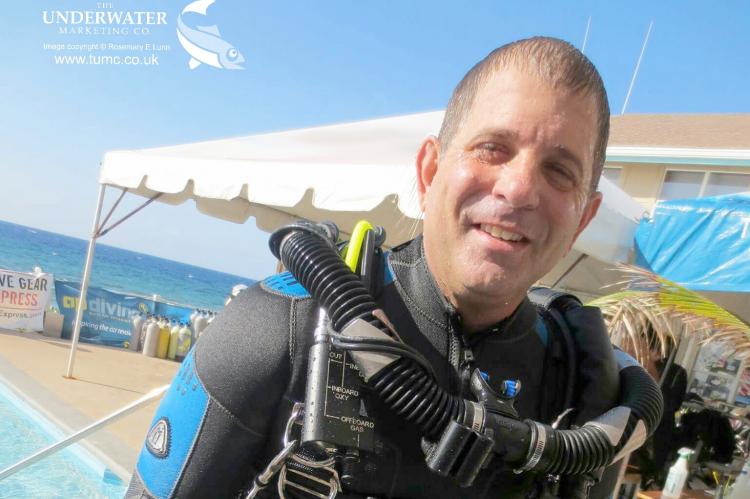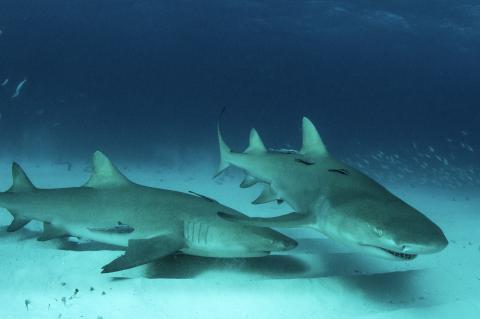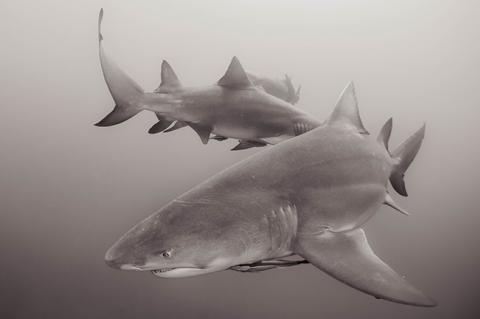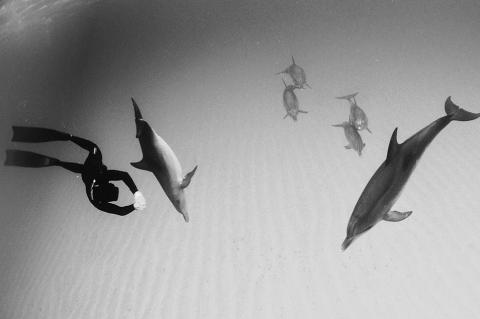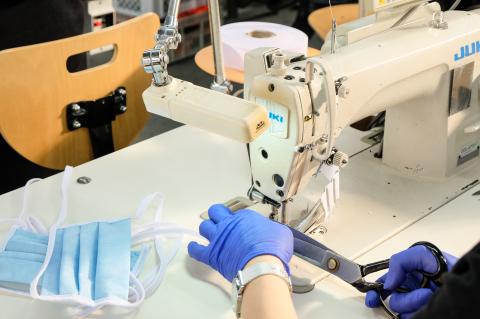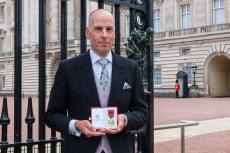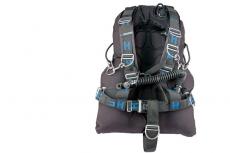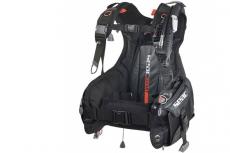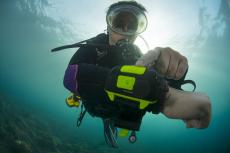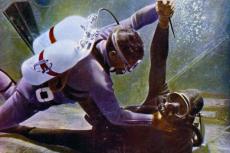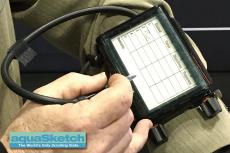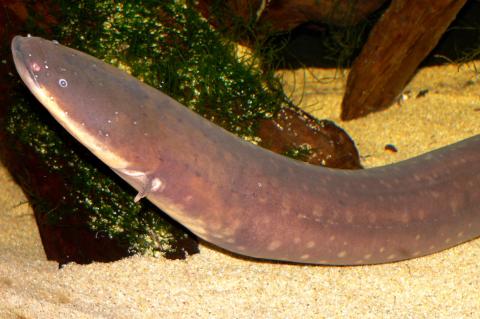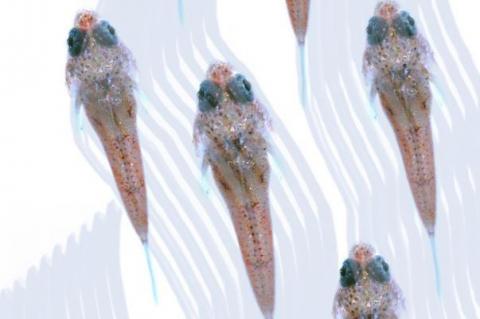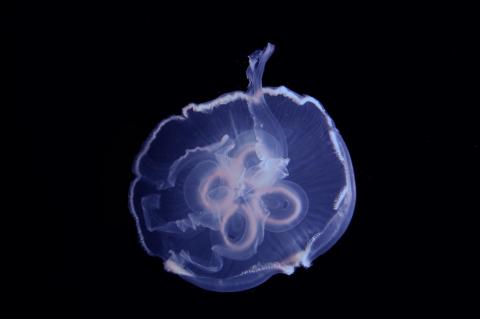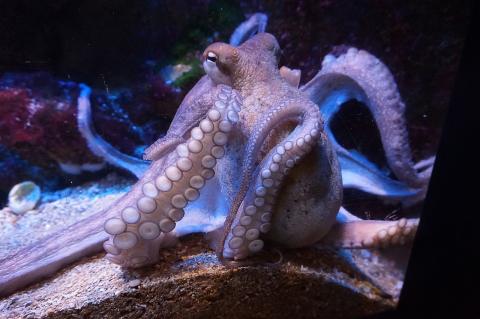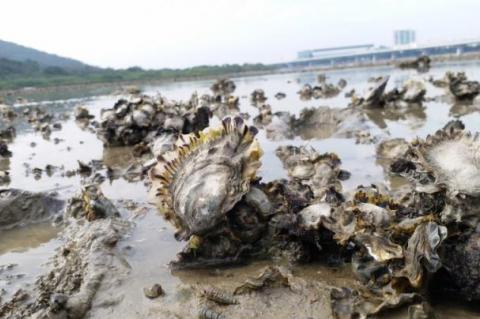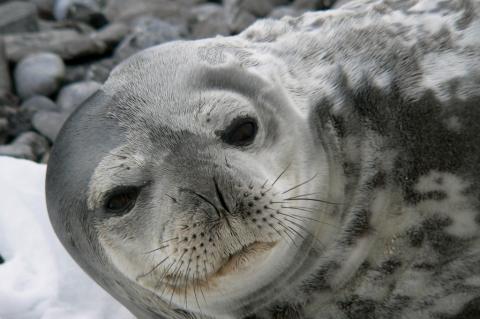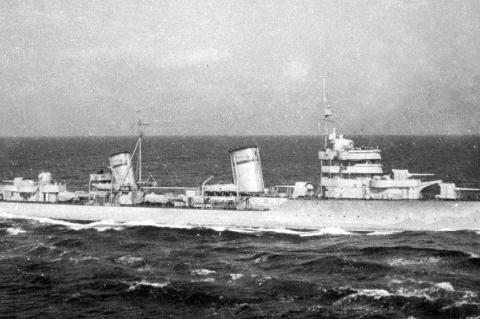Rob Stewart Lawsuit "Not About The Money"
It is understood that the family of 'Sharkwater' cinematographer Rob Stewart is preparing to file a wrongful death lawsuit, at Broward County Circuit Court, against several companies and individuals involved in his fatal tech dive on 31st January 2017
Global TV will be broadcasting the full ET Canada interview with Sandy and Brian Stewart today - Thursday 30 March 2017 at 19.30 EST.
The 37 year-old Canadian conservationist had been training, filming and diving off Key Largo, Florida. On the day of his death he was diving on the deep wreck 'Queen of Nassau' (70 mt / 230 ft) located near Alligator Reef six miles off Islamorada.
When Rob Stewart and Peter Sotis surfaced, Sotis appeared to have breathing difficulties. As a result the crew of the dive boat Pisces rushed him on board.
Any diving incident can be highly stressful for the personnel involved in the rescue. It is therefore believed that whilst the crew focused entirely on Sotis' welfare, no one from the boat was watching Stewart, including members of Stewart's team. When the team turned around to retrieve Stewart, he had disappeared beneath the surface.
Many sources have indicted that this was the third consecutive 70 mt / 230 ft closed-circuit rebreather dive of the day.
Three days later, after a massive, multi-agency, 6,000 square-mile search, the US Coast Guard southeast district tweeted at 12:05am on 4 February 2017, [the] "Body of diver Mr Stewart reportedly found @ depth of 220 ft (67 mt) by ROV assist to Key Largo Vol Fire Dept.
Family Interviewed by ET Canada
Rob Stewart's parents - Brian and Sandy - were recently interviewed by ET Canada. The family confirmed that they want to help keep attention on Stewart’s mission of ocean conservation.
Brian Stewart told CBC, "We are committed to making sure we get Rob's message out in the best possible way that we can."
“His film is going to continue. The team is still together and they’re going to finish and complete the [followup 'Sharkwater'] film for 2018.”
Sandy Stewart
"But what we're trying to grapple with is once we get through Sharkwater: Extinction, what do we do next? How do we keep the mission moving forward and deliver on his dreams?"
Brian Stewart
“This isn’t about the money from our perspective at all. This is about making sure no one else dies the way Rob died. No other parent should go through what we went through.”
Brian Stewart
It is believed that the lawsuit names, amongst others, Peter Sotis, Stewart’s Rebreather (CCR) instructor and buddy on his final dive, and Sotis’s company 'Add Helium'.
The Marmite Man
It would be fair to write that Sotis is considered by many as a Marmite man. Like the Brit yeast based savoury spread, Peter Sotis polarises reactions - you either love him or hate him - and those who know him have a strong opinion about him.
Sotis does have a colourful past. He was one of four defendants to plead guilty to a US$300,000 jewellery heist in Fort Myers in 1991. Sotis subsequently served almost three years in federal prison. It has also been reported that he was recently sued by his former business partner for allegedly selling military-grade scuba equipment to a Libyan militant and selling non-certified compressed air tanks to Add Helium's customers.
David Concannon of Concannon Charles - a Pennsylvania based law firm that specialises in rebreather and technical diving - issued an email statement to CBC. He republished this statement on Concannon Charles' Facebook page.
Concannon wrote "Although I have not been formally retained to defend this case (as far as we know, the complaint has not been filed and it has not been served, so the allegations could change), I have been asked to respond on Mr. Sotis’ behalf today. You may use the following quote with attribution:
The [Stewart] family alleges that Peter Sotis has a criminal record from a case dating back to 1991. This is true, but Mr. Stewart’s partner, Brock Cahill also has a criminal record from two cases in North Carolina in 1996 and 1997? Is this relevant? A jury will ultimately determine this, but it doesn’t seem to answer the question of what happened to Mr. Stewart on January 31, 2017."
Dive Operator Also Named
It is believed that the dive operator (Horizon Divers) has also been named in the lawsuit.
David Concannon stated, "The [Horizon Divers] vessel [Pisces] was chartered by Rob Stewart, Brock Cahill and their production company directly from Horizon Divers in early December 2016, and their plan was always to dive three dives each day.
In fact, Horizon Divers moved the vessel further north to cut transit time to the wreck each day to allow the film makers to make three dives per day. Peter and Claudia Sotis were invited to participate in the charter by the filmmakers. As a commercial filming operation, the film makers and the dive boat owner both had legal duties to ensure the safety of everyone on board the vessel."
On 3 February 2017 the Miami Herald inaccurately reported "Captain Jeffrey Janszen, commander of US Coast Guard Sector Key West, confirmed a Key Largo Volunteer Fire Department dive team found Stewart about 300 feet from his last known position. “He was very close to where he disappeared,” Janszen said."
This was not the case. I was told first hand by a source close to this fatality that once the body had been spotted by an ROV, the Key Largo Volunteer Fire Department dive team asked Horizon Divers if they could do the body recovery, because of the depths involved.
David Concannon's statement confirms that Stewart’s body was therefore recovered by the owner of Horizon Divers, the lawyer for Horizon Divers, and another employee of Horizon Divers. Brock Cahill and an unlicensed investigator that works for the attorney were also on the Pisces, (the boat that was used to perform the recovery), whilst the divers were underwater.
Stewart's Attorney Speaks
The Stewart family have indicated that they hope the legal action will push out and change the ways of all irresponsibly operating diving businesses.
Florida Keys News reported that "Michael A. Haggard, the Stewart family’s attorney, said Peter Sotis “violated every standard in the dive industry” the day Stewart lost his life and in the months before when Sotis trained Stewart on the complex, and often dangerous, rebreather dive equipment.
“He rushed Rob’s training,” Haggard said, adding the hastened course on the rebreathers was a “fraudulent inducement to use certain equipment.”
“When you learn more about these defendants and the history of negligent behaviour by people like Mr Sotis, you come to realize this was a preventable tragedy that was going to happen to someone.”
The family attorney later told ET Canada "When everyone else was all hands on deck, to help, including Horizon Divers. Their boat went out every day to find Rob. Peter Sotis thought it more important to go to Curaçao."
It should be noted that the Curaçao trip was not a spur of the moment decision by Sotis, but something that had been planned for many months.
In his statement to CBC, Attorney David Concannon wrote, "The family alleges that Horizon Divers, Peter Sotis, Claudia Sotis and Add Helium sent Mr. Stewart back down to the wreck with Mr. Sotis to retrieve the anchor. In fact, Peter Sotis, Claudia Sotis and Add Helium did not send Rob Stewart anywhere. The dive boat crew did not have the proper equipment to retrieve the anchor so Peter Sotis, a guest, volunteered to perform this crewman’s task for the dive boat. Mr. Stewart volunteered to accompany Mr. Sotis and he was told twice that this was not necessary, but Mr. Stewart insisted."
We believe that Rob Stewart was new to closed-circuit rebreather diving. His family has indicated that he had not attained the level of expertise needed to conduct the types of dives Sotis allowed that day. It has also been reported on social media that at least four people personally warned Rob Stewart to slow down so that he didn't end up killing himself on a dive.
We leave the last word to David Concannon.
"For now, however, it is important to remember that there are two sides to every story and the truth is somewhere in the middle. Allegations in a lawsuit are not always truthful or accurate, and the litigation process tends to reveal facts that are not always represented when a complaint is filed."
David Concannon, Concannon and Charles Law Firm


